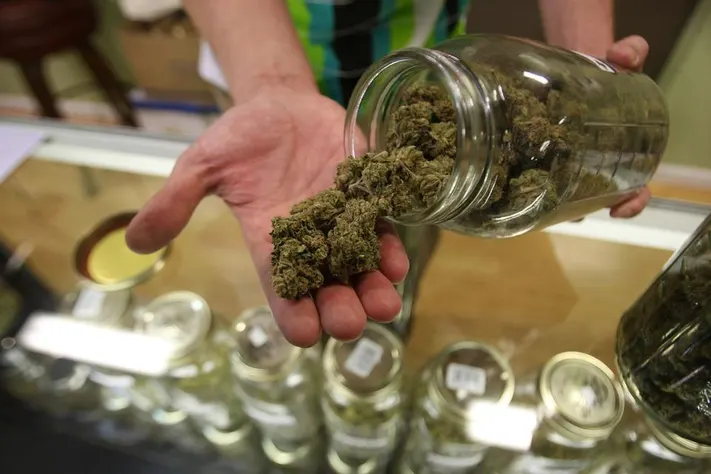
Photo from Forbes
The number of older adults hospitalized for cannabis poisoning tripled after Canada legalized the retail sale of marijuana, according to a study published Monday in the journal JAMA Internal Medicine, as the drug’s rapid legalization in North America leads to more calls about side-effects—including among seniors.
Researchers analyzed over 2,300 emergency room visits for cannabis poisoning among adults 65 and older in Ontario, finding the rate of visits increased significantly after Canada legalized the sale of dried cannabis flowers and edibles compared to a period before legalization.
The rate of emergency room visits for cannabis poisoning doubled over 14 months after Canada legalized the sale of dried flowers in 2018 and tripled over two years after the sale of edibles was legalized in 2020, according to the study.
Older adults are more at risk for cannabis poisoning because they’re likely taking other medications, as they’re more likely to suffer from drug interactions, the study says.
Researchers said Increases in accidental ingestion and ease of access to cannabis products are probable factors in an increase in emergency room visits.
WHAT WE DON’T KNOW The number of older Canadians who faced cannabis poisoning without heading to a hospital is likely higher, researchers noted, adding the study was limited to emergency room visit data. Some adults may sought medical care somewhere else or not at all, as some of the data includes a period during the Covid-19 pandemic, the study said.
Canadians aged 65 and older are the fastest-growing age group for consuming cannabis, with over 400,000 people saying they tried the drug by the end of 2019 compared to 40,000 in 2012, according to a Statistics Canada report. About 15% of adults over 65 in the U.S. reported using cannabis between 2017 and 2020.
Health officials have become more concerned about older adults using cannabis products over the last decade. Symptoms of cannabis poisoning include dizziness, confusion and nausea, while more severe symptoms result in delirium, panic and anxiety, among others. Studies suggest the long-term effects of cannabis poisoning can exacerbate psychotic diseases like schizophrenia or result in a rapidly increased heart rate. People who are hospitalized with severe cases of cannabis poisoning are sometimes treated with sedatives, like valium, though most cases rarely require treatment. In the U.S., calls to poison control centers related to cannabis by adults aged 50 and older increased 18-fold between 2009 and 2019, according to a 2020 study. Emergency room visits linked to cannabis use in adults age 65 and older increased from a rate of 20.7 per 100,000 visits in 2005 to 395 per 100,000 in 2019, a 2023 study of California hospitalizations found. Canadian officials have warned older adults face a higher risk of cannabis side-effects—suggesting they are also susceptible to accidental ingestion—as products are four times stronger on average than they were in the 1980s.
s-After Canada legalized cannabis sales, hospitalizations for cannabis poisoning among seniors tripled, a study reports. Older adults face increased risk due to potential drug interactions. Concerns rise as cannabis use among seniors grows, highlighting the need for caution and education.















